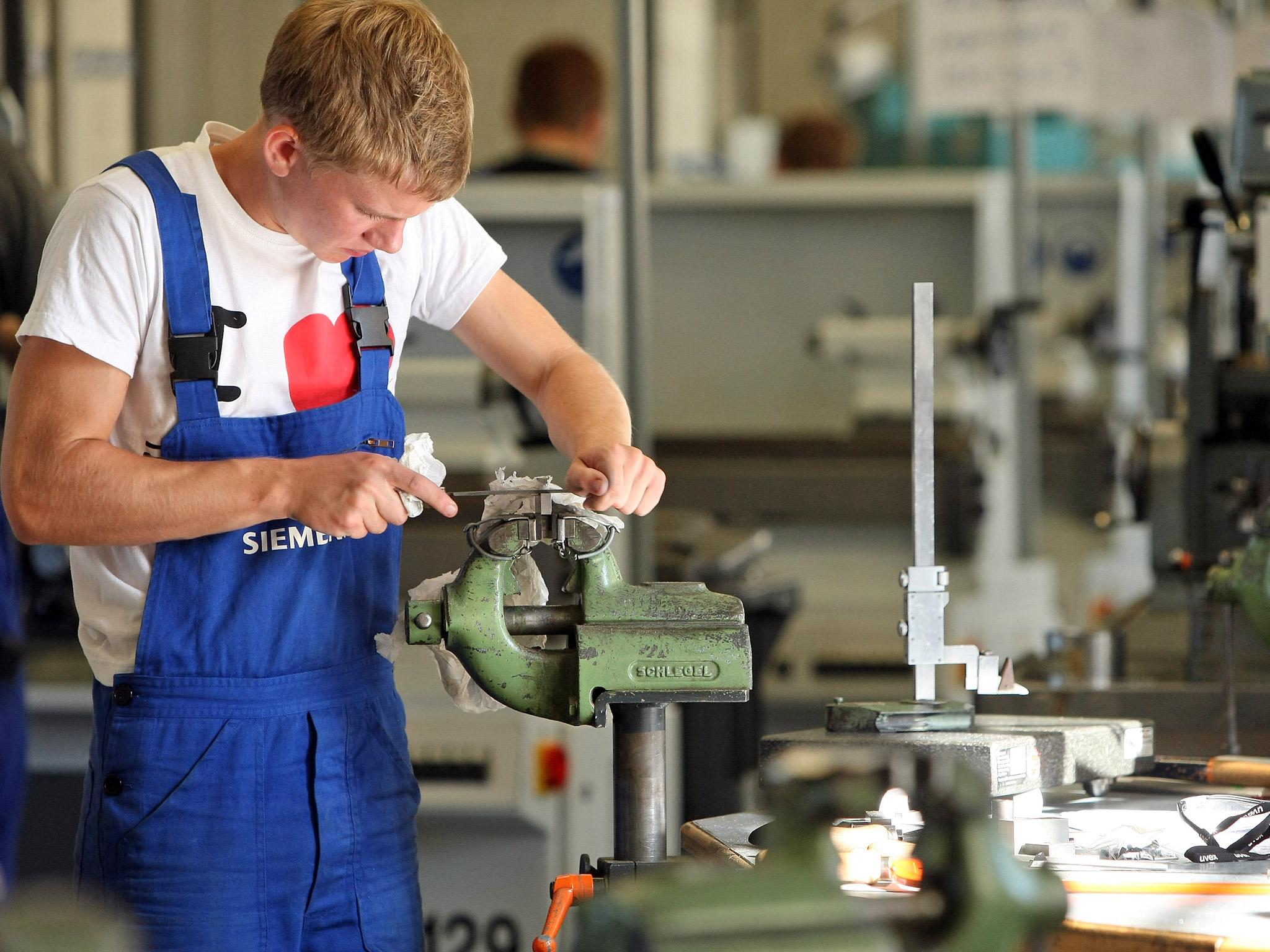Government's £2bn-a-year apprentice scheme is disproportionately used by young people from wealthier families
Exclusive: The social mobility watchdog is urging ministers to ensure people from disadvantaged backgrounds are not squeezed out

Your support helps us to tell the story
From reproductive rights to climate change to Big Tech, The Independent is on the ground when the story is developing. Whether it's investigating the financials of Elon Musk's pro-Trump PAC or producing our latest documentary, 'The A Word', which shines a light on the American women fighting for reproductive rights, we know how important it is to parse out the facts from the messaging.
At such a critical moment in US history, we need reporters on the ground. Your donation allows us to keep sending journalists to speak to both sides of the story.
The Independent is trusted by Americans across the entire political spectrum. And unlike many other quality news outlets, we choose not to lock Americans out of our reporting and analysis with paywalls. We believe quality journalism should be available to everyone, paid for by those who can afford it.
Your support makes all the difference.Young people from better-off families are taking up most of the new apprenticeships under the Government’s flagship £2bn-a-year scheme.
New figures show that low-income families are underrepresented on the programme, even though it is seen by ministers as the main alternative to university. Theresa May has made social mobility a top priority for her government.
Alan Milburn, chair of the Government’s Social Mobility Commission, is urging ministers to intervene to ensure people from disadvantaged backgrounds are not squeezed out of the scheme by middle class youngsters.
The watchdog found that school-leaver apprentices were dominated by pupils with relatively low GCSE results who were not eligible for free school meals. Youngsters from poor families took up only 10 per cent of apprenticeships, even though they accounted for 13 per cent of those completing GCSEs. Poorer children were also less likely to take up higher level apprenticeships – equivalent to A-levels.
Mr Milburn cast doubt on whether the Government’s drive to create three million apprenticeships in England by 2020 will boost skills levels – seen as vital as the UK prepares for the post-Brexit era.
He told The Independent: “Apprenticeship numbers are growing but the focus so far has been on quantity, not quality. Almost all of the young people who start an apprentice do so at qualification levels which are the same as their previous level of study.”
Although apprenticeships are open to those aged 16 and over, the majority of recent ones have been taken up by people aged 24 and above. Mr Milburn believes that employers are “rebadging” existing training programmes as apprenticeships rather than providing new qualifications to aid upward mobility.
The former Labour cabinet minister said: “Low-quality apprenticeships which do not lead to good careers should be prevented from using the trademarked term and no longer be advertised on the Government website.”
Mr Milburn added: “Improving social mobility means tackling the stark inequity in who gets the best apprenticeship opportunities. More affluent children are twice as likely to start a Level 3 apprenticeship [equivalent to 2 A-levels] in some parts of the country than the less-off. The Government needs to step in to create a more level playing field to ensure that young people from all backgrounds are able to access high-quality apprenticeships.”
The areas with the biggest “class gap” included Yorkshire and the Humber, the North East and the South West.
Mr Milburn is worried that apprenticeships are predominantly in lower-pay, lower-skill sectors rather than matched to the nation’s skills demands. The 10 most popular in 2014-15 included health and social care, catering, retail and customer service, which have “endemic poor pay”.
His commission found that completing some apprenticeships yielded no or low wage increases. While one in construction brought a 32 per cent premium, secretarial training resulted in only a 7 per cent uplift.
Some 97 per cent of 19-24 year-olds starting apprenticeships did so at the same qualification level as their previous studies, so their training would not necessarily boost their job prospects. The commission found some evidence that apprenticeships were not “open to all”, with employers setting a minimum level of qualifications such as five good GCSEs in order to hire the best candidates. That risked excluding candidates who needed vital qualifications to progress in the workplace.
Robert Halfon, the apprenticeships and skills minister, said: “We are determined to build a world-class apprenticeships scheme which will give millions of people, regardless of background, the opportunity to secure the job they want and deliver the skills our economy needs. As part of this, we are investing more than £60m to support the training of apprentices from disadvantaged backgrounds, and already more than one quarter of apprentices come from the poorest households in the country.
“Apprenticeships must be of the highest quality and all standards are now developed by employers themselves and rigorously checked before being introduced. A record number of people participated in higher apprenticeships in the last academic year – almost 900,000 in total – with over 90 per cent going into work or further training, and our new Get In Go Far campaign aims to inspire more young people to follow their example.”
From April a new Institute for Apprenticeships will be charged with approving standards to ensure they are high-quality. In the past year, the Government rejected 142 out of 238 proposals (60 per cent) because they did not meet its criteria.
Join our commenting forum
Join thought-provoking conversations, follow other Independent readers and see their replies
Comments